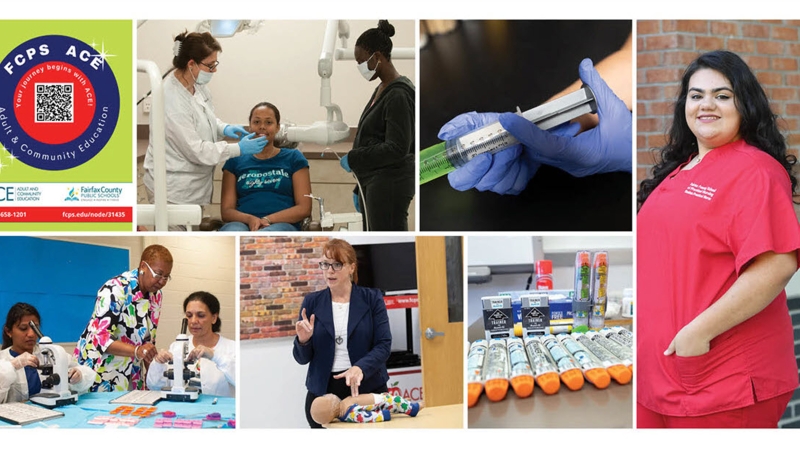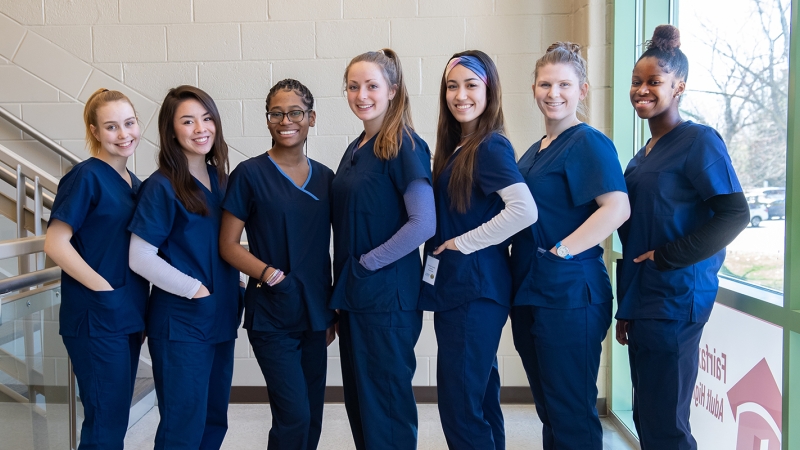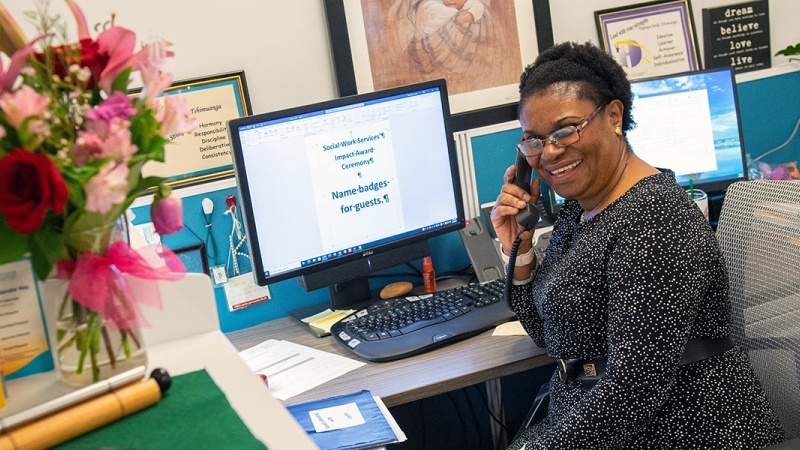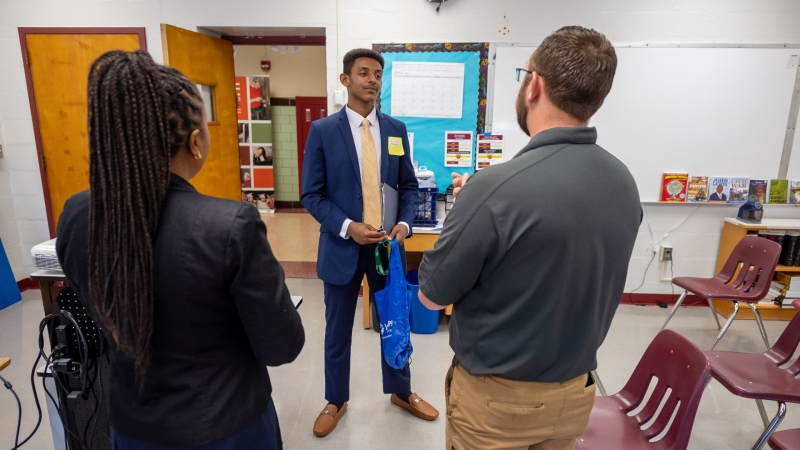
Practical Nursing
The School of Practical Nursing in Fairfax County Public Schools (FCPS) is offered to interested and qualified high school juniors.
The School of Practical Nursing is a program that trains students to become a Practical Nurse. This very rigorous program runs as a 2-year cohort, and has been approved by the Virginia Board of Nursing.
Eligibility
Minimum Requirements
- The program is open to rising juniors.
- Students must be 18 years old by January 1 of their senior year.
Highly Recommended
- Students take and pass Algebra I and Biology
- Students take Introduction to Nursing, and/or Language of Medicine. These courses can be taken in person. The Language of Medicine is available through the Online Campus.
- Talk with your high school counselor and parents early in your high school career so you are prepared to enter the program your junior year.
Due to an increase in the number of high school students participating, we are not accepting adult applications.
The Program
Students take courses that begin their junior year in high school. Junior year is an everyday academy block class. Senior year is an all-day academy course that meets every other day. Class schedules follow the Fairfax County Public School (FCPS) calendar.
Program Topics
Practical Nursing includes education in specific health and medical science topics:
- introduction to practical nursing
- nursing fundamentals and skills
- anatomy and physiology
- medical terminology
- pharmacology and medical math
- growth, development and geriatrics
- maternal child health and pediatrics
- mental health
- nutrition for nurses
- leadership and healthcare issues and trends.
- clinical-based education
Classroom Experience
The classroom (didactic) experience includes some in-school nursing lab sessions with manikins and education in health and medical science topics.
Clinical Experience
Practical Nursing 1 and 2 offer students clinical experiences. Under the supervision of their clinical instructor, students assist in the care of patients. As part of the training, students:
- perform treatments
- give medications
- educate patients
- provide full patient care
Clinical instructors are very experienced registered nurses and licensed practical nurses.
Clinical Sites and Experiences
Clinical sites and experiences vary depending on availability but can include:
- hospitals
- nursing homes
- doctors’ offices
- clinics
- a wide variety of settings covering various age groups
Requirements for participation in clinical experiences
- Criminal background check
- Drug screening
- Immunization documentation
- Health insurance
- Computer with internet access
Schedule
Schedules change slightly on a yearly basis.
Classroom Experiences
In general, classroom experiences are from 8 a.m. to 2 p.m.
Clinical Experiences
Clinical days are generally scheduled from 6:30 a.m. to 3 p.m.
Evening clinical hours vary depending on the facility. Possible schedules include:
- 3 p.m. to 12 a.m.
- 4 p.m. to 8:30 p.m.
Leadership
Career and Technical Student Organizations (CTSO) are an integral part of the career and technical education classroom. CTSOs play an important role in preparing students to become college and/or career ready.
The Health Occupations Students of America (HOSA) is an organization for students enrolled in Health Occupation programs. Through HOSA Students:
- connect to the healthcare community; both at the local and national level.
- develop leadership skills by planning health related activities
- emphasize wellness and disease prevention in their homes, school, and community.
Licensure
The Virginia Board of Nursing requires:
- 400 hours of clinical experience to be eligible for licensure as a Practical Nurse.
- a 74% or better in each class to be eligible to take the National Council Licensure Exam (NCLEX) for licensure.
- Social Security Number or a control number issued by the Virginia Department of Motor Vehicles.
After passing the licensure exam, graduates are able to practice nursing as a licensed practical nurse (LPN) in physician offices, long-term care facilities, health maintenance organizations, and hospitals. LPNs are also eligible for advanced placement in many registered nursing (RN) educational programs. Many health care employers provide tuition assistance or reimbursement.





